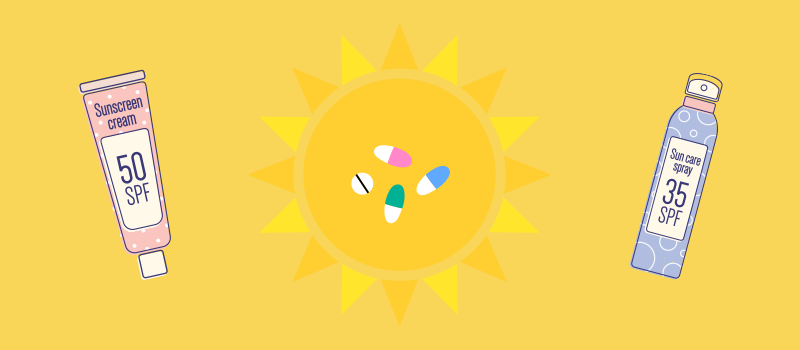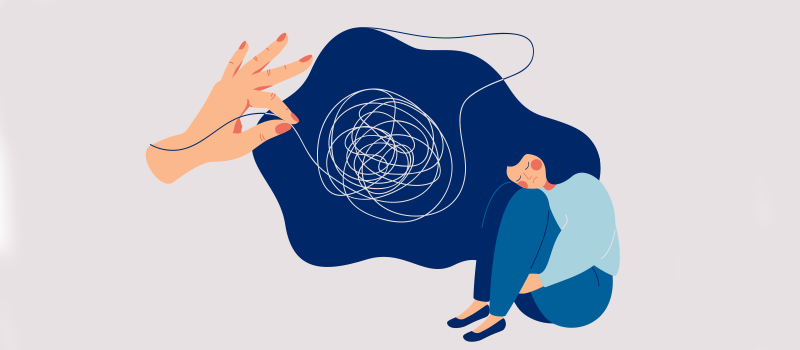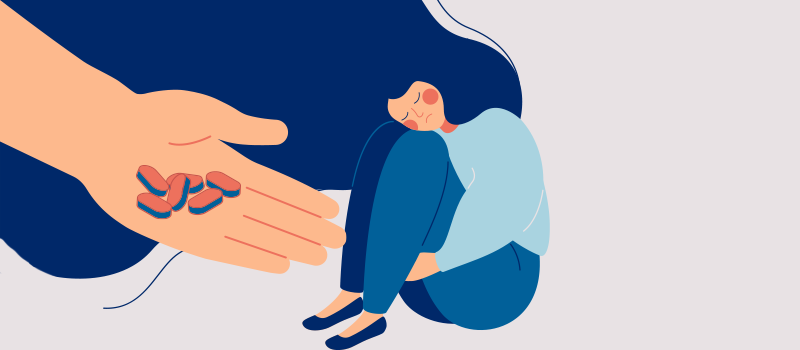What’s the Buzz
The Bee Healthy Blog
The Dangers and Effects of Chronic Stress

Stress is not necessarily a bad thing in and of itself. Rather, it is a natural reaction to life experiences. It is perfectly normal to feel stressed occasionally. A looming work deadline, an upcoming job interview, a divorce, the death of a loved one, or impending test results can all trigger temporary stress.
Your response to these common stressors is your body’s way of coping with potentially serious situations. When the situation eases, the symptoms of stress disappear.
But sometimes, stress can be present all the time, taking control of your life and putting your physical and mental health at risk.
Please continue reading to learn about some of the dangers of chronic (long-lasting) stress and the effects it has on various body systems.
What is a stress response?
When you encounter a real or perceived danger, such as a growling dog or someone following you down a dark alley, a part of the brain called the hypothalamus triggers an alarm in your body. This results in what is commonly called the fight or flight response. It is an automatic physiological reaction to a stressful or frightening event.
A cascade of reactions occurs as part of the fight or flight response to prepare the body to fight the danger or flee from it. These reactions are essentially evolutionary adaptations that occurred to increase our chances of survival.
Through a combination of hormonal (including cortisol) and nervous system signals, the heart rate increases, the blood vessels dilate (widen) to send more blood to the muscles, muscle tension increases, breathing rate increases, the liver makes more glucose (energy) available, the eyes dilate, and the skin becomes pale (due to a diversion of the blood to more essential parts of your body). Once the danger passes, this acute stress response stops firing.
What causes chronic stress?
You probably have some friends who are completely unfazed by whatever life throws at them— they seem relaxed about things that usually trigger stress in others. On the other hand, there are people who react quite strongly to even mild stressors. Most people fall somewhere between these two extremes.
A person’s reaction to any stressful event is unique. It is determined by both genetics and life experiences. Overactivity or under-activity of genes that control the stress response can affect how a person reacts to stressful situations. Also, chronic stress may occur as a result of traumatic events in the past. For example, surviving childhood abuse or a violent crime can affect how a person reacts to future stressful events.
What are the symptoms of stress?
As noted, acute stress occurs due to clear and present danger. It triggers the fight or flight response with a range of physical symptoms. Chronic stress, which is more constant than acute stress, may have even more far-reaching effects. These include physical, emotional, cognitive, and behavioral symptoms. Chronic stress can have long-term implications on a person’s mental and physical health.
Some of the common symptoms of stress include irritability, anxiety, depression, insomnia, and headaches. Chronic stress can cause muscle aches and pains, low energy, changes in appetite, clouded thinking, increased alcohol or drug use, emotional withdrawal, and changes in social behavior, such as avoiding friends.
If you are experiencing these symptoms, it is important to be proactive about stress management. You can take steps to try and manage stress, such as getting regular exercise or participating in relaxing activities. If these measures don’t work, it’s essential that you obtain medical advice. Talk to your doctor about getting emotional support. This is important if you want to prevent the long-term physical and mental effects of stress, which can lead to a number of serious health problems.
What are the major systems affected by chronic stress?
According to the American Psychological Association, chronic (long-term) stress affects nearly every organ system in the human body.
Nervous system
The nervous system is designed to deal with short-term stressors. The sympathetic nervous system is directly involved in the body’s response to imminent danger. However, when stress is present long-term, it can drain the body’s resources. The constant triggering of the nervous system can lead to the wear and tear of many organs in the body.
Endocrine system
When certain situations stress a person, the body increases the production of hormones such as cortisol (commonly known as stress hormones) from the adrenal glands. While this is an important response to make more energy available during an acutely stressful event, in the long term, increased cortisol levels can lead to many health problems such as diabetes, obesity, and depression.
Immune system
Stress causes the release of a variety of substances in the body that influence the immune system, leading to reduced immunity. The risk is especially high in older individuals or those with underlying health conditions.
Gastrointestinal system
The brain-gut axis is a direct communication channel between the nervous system and the gut (it explains why you sometimes feel nauseous or experience butterflies in your stomach before an exam or big presentation ). Stress can lead to changes in the gut microbiome, i.e., the millions of microorganisms that inhabit the gastrointestinal tract. This can lead to symptoms such as heartburn, nausea, vomiting, stomachache, bloating, and indigestion.
Respiratory system
Strong emotions related to stress can affect breathing, causing rapid, shallow breaths or shortness of breath. This is usually not a problem for people with a normal respiratory system, but in those with underlying breathing issues, such as asthma, chronic bronchitis, emphysema, or COPD, it can exacerbate the condition. Also, rapid breathing in a person who is stressed can trigger a panic attack if the person is prone to mental health disorders.
Cardiovascular system
Increased heart rate and blood pressure are important components of the acute stress response. However, a consistently elevated heart rate and high blood pressure due to chronic stress can lead to heart disease and other serious health problems.
Musculoskeletal system
When the body is under stress, the muscles tense up. With chronic stress, the muscles are constantly tense or taught. The resulting muscle tension can lead to physical symptoms such as tension or migraine headaches and/or neck, shoulder, and back pain.
Reproductive system
The release of stress hormones like cortisol from the adrenal glands has an effect on both the male and female reproductive systems. In men, chronic stress can lead to low libido (sex drive) and erectile dysfunction (impotence). The stress response can also impact sperm production, making it difficult for couples to conceive. In women, stress can lead to irregular or painful menses, reduced sexual desire, and reduced ability to get pregnant.
What are 3 long-term effects of chronic stress?
According to the Department of Health and Human Services and the American Psychological Association, chronic stress has some of the most significant effects on the heart and blood vessels. A consistent increase in heart rate and constantly elevated blood pressure can take a heavy toll on the body. Moreover, stress hormones contribute to inflammation in the cardiovascular system, specifically the coronary arteries, as well as increased cholesterol levels. For these reasons, chronic stress is believed to be linked to an increased risk of three serious, potentially life-threatening conditions—heart disease, heart attack, and stroke.
What treatment should I seek for chronic stress?
It can be difficult to tell the difference between chronic stress and anxiety. Stress is an inevitable part of life, but some people may experience chronic, paralyzing stress, making it difficult to get through daily routines and tasks. If mental health is affecting day-to-day life, it may be wise to seek professional help. A doctor may recommend seeing a psychologist or psychiatrist depending on your needs. One suggested treatment for chronic stress and anxiety is cognitive-behavioral therapy (CBT). During CBT sessions, a therapist helps patients modify their behaviors, thoughts, and feelings concerning stressors. They may also suggest this form of treatment in conjunction with medication. Some examples include antianxiety drugs, including Xanax and Valium for acute anxiety, or antidepressants such as selective serotonin reuptake inhibitors (SSRIs), including Prozac, Zoloft, Paxil, Lexapro, and Celexa. SSRIs have been used to treat generalized anxiety disorder (GAD), obsessive-compulsive disorder (OCD), panic disorder, social anxiety disorder, and post-traumatic stress disorder. Talk to your doctor to about what treatment may be most appropriate for you.
References:
- https://www.apa.org/topics/stress/body
- https://www.health.harvard.edu/staying-healthy/understanding-the-stress-response
- https://my.clevelandclinic.org/health/articles/11874-stress
- https://www.mayoclinic.org/healthy-lifestyle/stress-management/in-depth/stress/art-20046037
- https://www.yalemedicine.org/conditions/stress-disorder
- https://www.nimh.nih.gov/health/publications/stress/
- https://www.ncbi.nlm.nih.gov/pmc/articles/PMC1361287/
- https://health.gov/myhealthfinder/topics/health-conditions/heart-health/manage-stress










SOCIAL